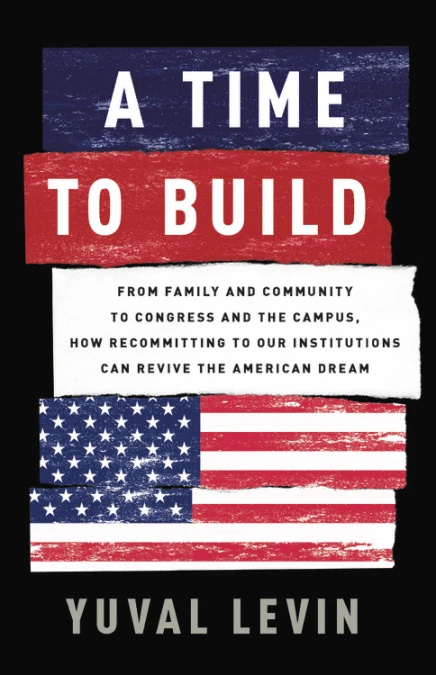Toward a Theology of Institutions
Theological resources can help stem the tide of plummeting institutional trust
Since the first Christian assembly—or what the New Testament calls the ekklesia—Christians have reflected on the nature, purpose, and limits of institutions. I have long thought about the relationship of the Christian theological tradition to my research on the right of assembly. More recently, I have wondered whether a “theology of institutions” might shed light on our declining trust in institutions.
In the News
This summer, Gallop reported that Americans’ confidence in their institutions continues to erode, “with significant declines for 11 of the 16 institutions tested and no improvements for any.” Gallop has polled for confidence in institutions every year since 1973—its 2022 poll showed record lows for all three branches of the federal government. Nor have religious institutions been immune to the decline in institutional trust. To the contrary, numerous high-profile scandals involving well-known religious leaders have unfolded alongside growing distrust in churches, parachurch ministries, and other religious institutions.
Following the Gallop poll, Amelia Thomson-DeVeaux and Zoha Qamar at FiveThirtyEight interviewed various experts on its implications. Their conclusion: “This broad loss of faith in the institutions that organize our society is dangerous . . . and it may be hard to reverse.”
In my Head
A theology of institutions will not by itself solve the problems of institutional distrust and the resulting harms to our social fabric. But theological reflection could lead to clearer thinking by those who profess transcendent beliefs and whose time horizons purportedly extend beyond earnings reports and election cycles.
This reflection might begin with a reminder that institutions are not beholden to the legacy of any single individual. Several years ago, I was with the leader of a prominent national Christian ministry. He had succeeded the ministry’s founder, and he shared with me an ugly encounter he had with the founder several years after taking over. As they were talking about the direction of the organization, the founder reached across a table, grabbed my friend by the tie, and angrily shouted at him, “You are ruining the ministry that I built.” Such a mindset is antithetical to a Christian understanding that the institutions people build, the books they write, and the efforts they finance, are not theirs to own or control. They are God’s to use for however long—or however short—as He knows is right.
A Christian theology of institutions also reminds people that they are only bit players within a much larger and much longer story. This story has unfolded with surprising twists and turns, often drawing from fragile and unexpected sources rather than powerful and established ones. That’s one reason Christian philanthropic efforts focused on scale and return-on-investment are often misguided. The Christian story relies more on Mary and Martha than McKinsey and Bain.
My friend Andy Crouch has argued that every human institution fails within three generations. Many if not most of them also disappear. It’s a humbling realization—most of the institutions that we labor to cultivate will be long forgotten by our great-grandchildren. And of course, most of us will ourselves be forgotten by our great-grandchildren, and certainly by the rest of the world.
But as Andy notes in his book, The Life We’re Looking For, the biblical story gives us a much different sense of time. In Exodus 20:6, God promises that He will show love to a thousand generations of those who love Him and keep His commandments. A thousand generations is all but incomprehensible to us. But if that is indeed the ekklesia extended over time, then those who love God and keep His commandments can know that they participate in a much larger story and have only glimpsed what is to come.
In the World
This month, I am convening a small group of scholars and practitioners to reflect on a theology of institutions. The gathering will include a public dialogue on the evening of January 19, 2023, hosted by the John C. Danforth Center on Religion and Politics at Washington University in St. Louis, where I hold a joint appointment. Even as I continue to mull the distinctive contributions of a Christian theology of institutions, I am curious about the intersection of this discourse with other theologically particular reflections. Toward that end, I will moderate a discussion between Richard Garnett (Notre Dame Law School), Shadi Hamid (Brookings Institute), Kristen Deede Johnson (Western Seminary), and Yuval Levin (American Enterprise Institute) where we will discuss Protestant, Catholic, Jewish, and Muslim influences on institutions and a theology of institutions. The dialogue is titled: “Why Institutions Matter: Religious Perspectives on Building and Sustaining Institutions in a Fractured Society.”
You can learn more about the free event or sign up to join here.
Rick, Shadi, Kristen, and Yuval have all written eloquently on the importance of institutions and the role of religion in sustaining them. Today, I’ll highlight Yuval’s insightful book, A Time to Build: From Family and Community to Congress and the Campus, How Recommitting to Our Institutions Can Revive the American Dream. Yuval observes that:
Many of our struggles seem rooted in relational problems. Loneliness and isolation, mistrust and suspicion, alienation and polarization—these are the characteristic maladies of this era. But because they are failures of sociality, they too often fall into the blind spots of our individualist culture.
Because society is filled with institutions that structure social life, “if we are too often failing to find belonging, legitimacy, and trust in our common life, then perhaps we are confronting not a failure of connection but a failure of institutions.” Somewhat ironically, the antidote to this challenge may require “a kind of devotion, even submission, to institutional formation.” In other words, rebuilding trust in institutions will require investing in the very flawed and misguided institutions we hope to reshape.






